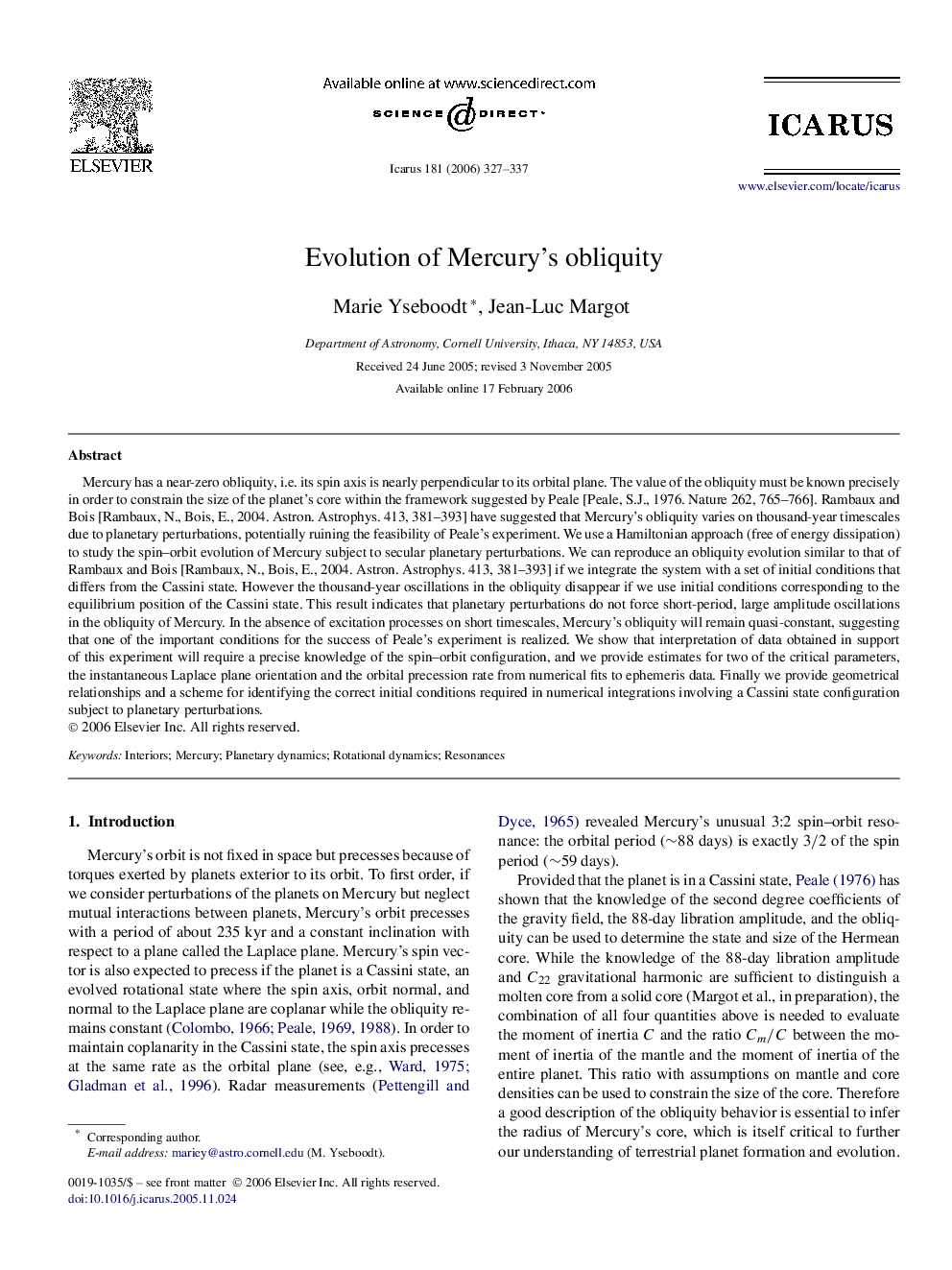| Article ID | Journal | Published Year | Pages | File Type |
|---|---|---|---|---|
| 1775815 | Icarus | 2006 | 11 Pages |
Mercury has a near-zero obliquity, i.e. its spin axis is nearly perpendicular to its orbital plane. The value of the obliquity must be known precisely in order to constrain the size of the planet's core within the framework suggested by Peale [Peale, S.J., 1976. Nature 262, 765–766]. Rambaux and Bois [Rambaux, N., Bois, E., 2004. Astron. Astrophys. 413, 381–393] have suggested that Mercury's obliquity varies on thousand-year timescales due to planetary perturbations, potentially ruining the feasibility of Peale's experiment. We use a Hamiltonian approach (free of energy dissipation) to study the spin–orbit evolution of Mercury subject to secular planetary perturbations. We can reproduce an obliquity evolution similar to that of Rambaux and Bois [Rambaux, N., Bois, E., 2004. Astron. Astrophys. 413, 381–393] if we integrate the system with a set of initial conditions that differs from the Cassini state. However the thousand-year oscillations in the obliquity disappear if we use initial conditions corresponding to the equilibrium position of the Cassini state. This result indicates that planetary perturbations do not force short-period, large amplitude oscillations in the obliquity of Mercury. In the absence of excitation processes on short timescales, Mercury's obliquity will remain quasi-constant, suggesting that one of the important conditions for the success of Peale's experiment is realized. We show that interpretation of data obtained in support of this experiment will require a precise knowledge of the spin–orbit configuration, and we provide estimates for two of the critical parameters, the instantaneous Laplace plane orientation and the orbital precession rate from numerical fits to ephemeris data. Finally we provide geometrical relationships and a scheme for identifying the correct initial conditions required in numerical integrations involving a Cassini state configuration subject to planetary perturbations.
